Customers Experience the Economy of Quality
As we approach 2020 planning season, we thought we’d debunk one of the more common budgeting myths in the machining industry. Shops often look to tooling as an opportunity to cut costs because they can be consumable, there’s variability in work, there are a lot of them around the floor and, well, they’re small. But just because you buy inexpensive tooling doesn’t mean you’re saving money. Invest in your tooling and experience the economy of quality.
Better tooling and fixturing benefits a machine shop’s team, effectiveness and ultimately its bottom line in several different ways:
- Presetters and digital tooling move setups offline and reduce the time it takes them to get them done right, allowing for more spindle time.
- Twin cutting boring heads essentially cut cycle time in half
- Zero-point workholding makes securing workpieces and setting offsets quick and easy
- Reduced chatter so parts get cut right the first time
- Inventive tools like spindle speeders and angle heads maximize your machinery
- Shorter and more narrow tools improve access to difficult work envelopes or multi-axis work, reducing setups
All of these benefits compound over time, paying back the initial investment over and over again. That’s what the Economy of Quality is all about, more productive environments. But don’t just take our word for it. Here are two of the many examples of customers who have experienced the Economy of Quality for themselves.
Team Penske increases tool life by 30%, accelerates setups by 80%
When it comes to racing, speed is of the essence—and we don’t just mean on the track. The drivers and teams we all know count on their machine shops to adjust to tracks, rules and performance on a weekly basis.
Matt Gimbel, Team Penske’s production manager put it this way, “We’re in a low-volume, high-mix environment with short lead times, so it may be hard to compare us to a typical shop—the roughly 50,000 parts we produce a year may be made up of just 2000 part numbers. But the pressure to continually adapt while maintaining high quality is the same as what every other metalworking operation faces.”
Team Penske has turned to BIG KAISER for several shop solutions, including the MEGA ER collet holder, a MAGIS 400 tool presetter and digital boring heads. The results have been undeniable. Here are just a few.
The CNC presetter with extreme accuracy and thermal stability has enhanced Penske’s unattended operations. The digital boring heads, with their easy-to-read DROs, eliminated the need for test cuts, making for an 80 percent faster adjustment process. And the MEGA ER collet holder with BIG-PLUS dual contact, has allowed Penske to ream and interpolate with deflection or runout less than 0.0002".
That’s all well and good, but what was the strongest evidence that Penske was experience the Economy of Quality? James O’Toole, Penske’s machine shop manager put it this way: “When our machinists kept requesting additional BIG-PLUS toolholders—because their performance was superior to a majority of our current inventory—that was proof for me.”
Twin cutter boring head reveals more value over time
The SW Twin Cutter Heads is a powerful, potentially game-changing solution for shops. It’s a versatile tool that allows for different roughing methods without the need to change components or use mechanical systems to adjust insert height; simply reverse the insert holders to switch between balanced and stepped cutting.
A&L Machine, a shop that serves primarily the energy sector, often with JIT (just in time) work, has experienced this firsthand. After a no-risk trial, the BIG KAISER engineering team delivered a ready-to-run solution. The head was configured with two insert holders. The inside grooving tool would machine the boss. Once the face of the part was reached, the outside grooving tool finished the outside of the groove.
“The results were immediate and undeniable, settling in at application metrics of 590sf and .002ipr,” Allen Dvoracek, A&L Machine president said. “We’re getting better parts off the machine sooner, allowing us to get to the next job ahead of schedule. Reducing the cycle time by 22 seconds per part will save approximately 40 machine hours a year on this job alone. That’s 40 extra hours of machine utilization that we didn’t [previously] have because of a fairly simple tooling solution…We’ve run more than 10,000 parts and never had to change an insert.”
That’s the Economy of Quality in a nutshell: longer tool life and faster cycles in one solution. Another customer, Tobias Hauff, head of production at MARTIN, a German builder of woodworking machinery, summed it up, saying, “We have never regretted putting our trust into BIG KAISER’s premium tool systems. They are not the cheapest tool manufacturer on the market, but the inherent quality quickly pays for itself due to a much longer tool life and superior production results.”
If our solutions can work in challenging scenarios like these, they can certainly work for you. To read more about how customers like these cashed in on the Economy of Quality—and how you can too—visit our Economy of Quality page here.


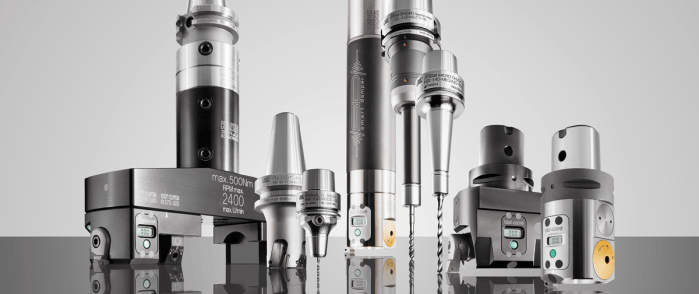
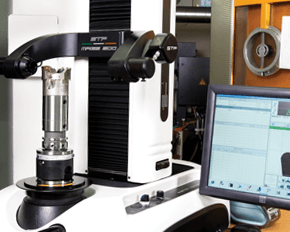
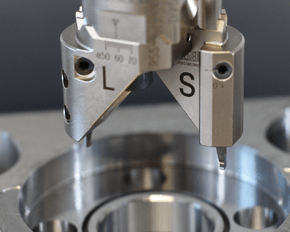
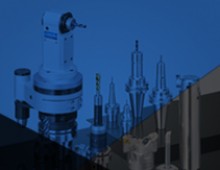
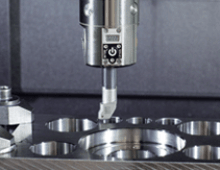
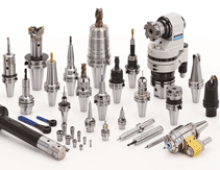
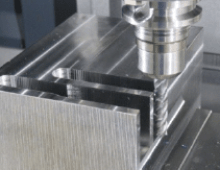
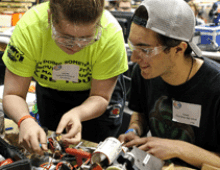
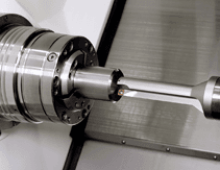
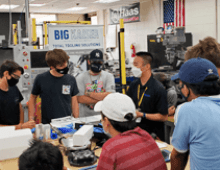
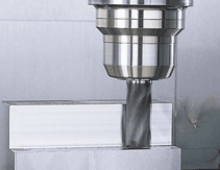
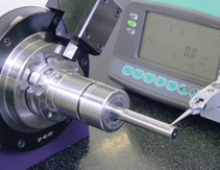
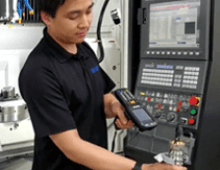
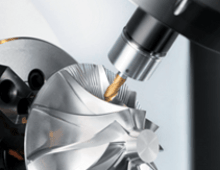
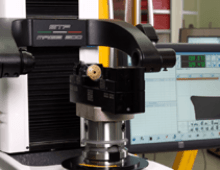
¿Te pareció interesante o útil? Haznos saber tu opinión agregando tus comentarios o preguntas a continuación.